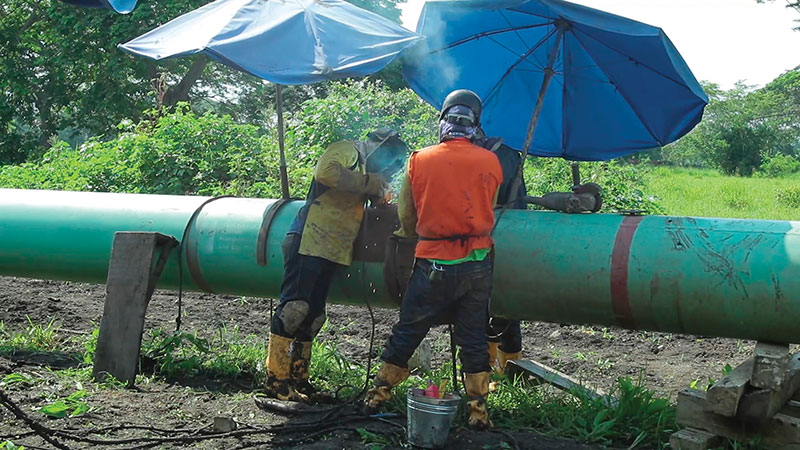Ecopetrol: With Reserves of Its Own, Colombia Does Not Need Venezuela's Gas
(Reuters) — Colombia can go without Venezuelan natural gas because of promising offshore developments of its own, Felipe Bayon, chief executive of state-controlled oil company Ecopetrol, told Reuters.
Companies have proposed reactivating a dormant gas pipeline that connects Venezuela's Western region with Colombia using a concession granted by Venezuela's state-run PDVSA, which financed and built the 16-year-old line.
"There is gas potential in Colombia," Bayon told Reuters in an interview on the sidelines of the CERAWeek energy conference in Houston. "That would be enough for Colombia and possibly for exports before decade's end," he said.
A restart of the line would be a potent symbol of closer political ties between Venezuela President Nicolas Maduro and Colombia's new President, Gustavo Petro. Friction between them has in the past led to suspended trade and closure of the border.
But Bayon and other Colombian oil executives believe at least three offshore gas prospects could help increase the Andean country's proven reserves by over 70% in coming years.
A deepwater venture by Ecopetrol and Brazil's Petrobras last year disclosed the Uchuva gas discovery. Companies project that first gas could come in 2026 by connecting to nearby infrastructure.
Shell and Ecopetrol separately last year announced an ultra-deepwater discovery at the Gorgon gas field, confirming the extension of a gas province. It could bring first gas between 2028 and 2029, Bayon said.
Occidental Petroleum and Ecopetrol in 2025 are planning to drill the first well under an exploration agreement covering deep waters near the maritime border with Venezuela, the executive added.
From Abroad
Ecopetrol also is taking part in oil and gas ventures overseas, including in the United States and Brazil. A technical team is evaluating the company's possible participation in a bidding round in Guyana that will receive bids through April, Bayon said.
Ecopetrol's future production in those countries also is expected to contribute to Colombia's availability of crude and gas while complementing its own reserves, which currently only cover some eight years of demand.
"I think (Guyana) is super interesting from the geological point of view... Everybody wants to go to Guyana nowadays," he said, without elaborating on possible bids.
According to Bayon, a more pressing issue to tackle by Colombia and Venezuela is the need for power interconnection aiming for a wider regional network.
The executive also said the gas reserves to develop could help the company compensate for the lack of shale developments if the Congress progresses in a proposed fracking ban.
Related News
Related News

- 450-Mile Eiger Express Pipeline Gets Green Light for Permian-to-Gulf Natural Gas Transport
- Energy Transfer’s Lake Charles LNG Project Wins Export Extension
- Kinder Morgan Launches Binding Open Season for Texas-to-Arizona Pipeline Expansion
- Harvest Midstream to Acquire 1,500 Miles of MPLX Pipelines in $1 Billion Deal
- ATCO’s 143-Mile, 1.1 Bcf/d Yellowhead Pipeline Project Wins Regulatory Approval
- Hungary to Start Talks with Qatar About Buying LNG
- Japan Becomes Top Buyer of LNG from Russia's Sakhalin 2
- BayoTech Relocates Northern California Hydrogen Hub to Accelerate Deployment
- Energy Transfer to Build $5.3 Billion Permian Gas Pipeline to Supply Southwest
- Ontario Seeks Study on Alberta-to-Ontario Pipeline and James Bay Port Corridor





Comments